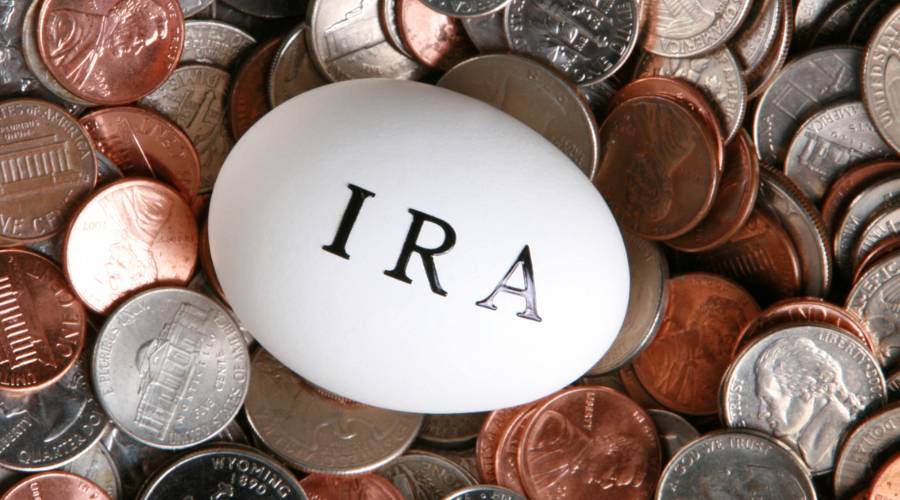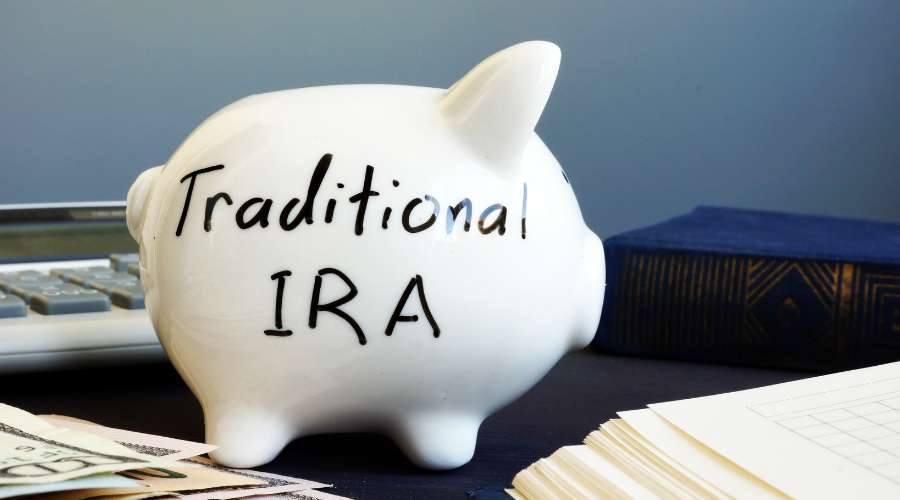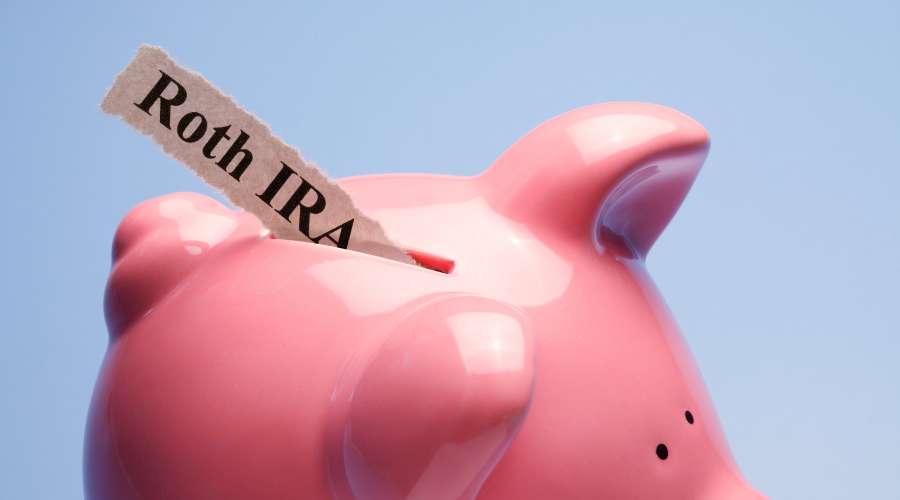If you’re thinking about setting up a Gold IRA to benefit from a diversified portfolio and investing in gold, silver, and other precious metals, you likely have a lot of questions on your mind. One of those questions probably relates to taxes. We always hear how Traditional and Roth IRAs offer favorable tax policies, but what exactly are those policies and do they even apply to Gold IRAs?
If you’ve been asking all of these questions, you’ve come to the right place. Today, we’ll take a look at the tax rules that relate to Gold IRAs and what that will mean for your overall retirement savings account. Read on to learn more so you can make a final decision about whether opening a Gold IRA is a smart move for your financial future.
If you are interested in investing, make sure to take a look at our highest recommended companies for this year!
>> Click Here For A List Of The 5 Highest Recommended Precious Metals Investment Companies <<
What is a Gold IRA

Let’s start with looking at what a Gold IRA is before we get too deep into a discussion about how these accounts are taxed. In addition to standard IRAs where you can hold stocks and bonds, the IRS also allows individuals to open Self-Directed IRAs. With this type of IRA, you’ll have more freedom to invest in alternative assets, such as precious metals. The gold, silver, platinum, or palladium coins and bars that you add to your account will be stored in a secure, IRS-approved depository until you are at least 59 ½ years old and eligible to begin taking distributions.
If you’re at all familiar with investing in precious metals, you’ll find all of the same benefits when you open a Gold IRA. Some of these benefits include holding physical coins and bars, investing in a rare resource with high global demand, being able to hedge against inflation, and more. Plus, you’ll also be able to benefit from the tax advantages that standard IRA holders enjoy. We’ll take a closer look at some of these benefits and tax rules below.
How Are Gold IRAs Taxed?
The rules for Gold IRA taxation vary depending on the type of account you open. As with standard IRAs, you can open either a Traditional Gold IRA, Roth Gold IRA, or SEP Gold IRA. All of these account types offer advantageous tax rules, but the right choice for you can depend on a few different factors. Let’s take a closer look at how both Traditional and Roth Gold IRAs are taxed in the new few sections.
Traditional Gold IRAs

When you open a Traditional IRA, the contributions you make a tax-deductible. As of 2023, you can contribute up to $6,500 per year to your account (or up to $7,500 if you are at least 50 years old). The money you add to your account can continue to grow, tax-free, until you are old enough to retire and decide to make withdrawals from the account. When you do start taking withdrawals (either in the form of money or precious metals) from your account, you will be required to pay taxes on that amount. However much you take out off the account will be combined with your annual gross income when you complete your taxes. You’ll pay your ordinary income tax percentage on these withdrawals.
Because of these tax rules, Traditional IRAs are often the preferred choice for those who believe they will fall into a lower tax bracket when they retire. This allows them to contribute to their account now, tax-free, and only pay taxes on it after retiring and losing enough of their income to go down a bracket or two.
In addition to the taxes on Traditional IRAs, it can also be helpful to understand the penalties that you could face if you withdraw money from the account too soon. According to regulations the IRS has in place, individuals are only considered eligible to retire/begin taking distributions from an IRA account once they are at least 59 ½ years old. If you need to access funds from your account before this time, you may face a 10% penalty for withdrawing funds too early. There are a few exceptions to this rule, however. If you are using the money from the account to purchase a first home or to pay for medical insurance (if you are not currently employed), you can avoid the early withdrawal penalties.
With a Roth IRA, you are also required to begin taking minimum distributions from your account by the time you are 70 ½ years old. If you do not take these distributions, you may face a 50 percent excise tax on the minimum distributions that you should have taken.
Roth Gold IRAs

A Roth Gold IRA work a little different, however the contribution limits are the same as a Traditional Gold IRA ($6,500 for those under 50 and $7,500 for those 50 and older). While a Traditional IRA allows you to contribute funds to your account without having to pay taxes on them (and even lets you deduct the contributions you make), a Roth Gold IRA does not. Any of the funds you wish to contribute to a Roth Gold IRA must be taxed before they are added to the account, based on your current tax bracket.
The advantage to a Roth Gold IRAs comes in when you have reached the IRS’s minimum retirement age of 59 ½ and are ready to start taking distributions from your account. At this time, because you have already paid taxes on the funds in the account, you are able to withdraw money without having to pay any additional taxes. This can be a real benefit once you’ve retired since you won’t have to worry about adding any taxable income to your taxes.
Because of how these tax rules work for Roth Gold IRAs, they are often the retirement account type of choice for those who believe they will be in a higher tax bracket when they retire. With this type of pre-taxed account, the funds they pay in now will be taxed at their current, lower tax rate than where they anticipate being when they are ready to retire.
Another advantage of a Roth IRA is that you are not required to start taking minimum distributions from your account once you are 70 ½ years old. If you desire to leave the funds in the account to let them grow, this could be the right account type for you.
There are still a few other penalties to be aware of, however, before you should sign up for a Roth Gold IRA. First, as with Traditional Gold IRAs, if you withdraw funds from your account before you are at least 59 ½ years old, you may be subject to the penalties and taxes described above. The same exceptions to these penalties can also apply with Roth Gold IRAs. Roth Gold IRA accounts must also be at least five years old for you to be able to make withdrawals without facing any taxes or fees. This rule remains in place even if you have already reached the IRS’s age of retirement, but have only just recently opened the account.
SEP Gold IRAs

SEP IRAs are a special type of IRA that can only be opened by self-employed individuals and some people who work for a small business. As with Traditional Gold IRAs, the funds you contribute to a SEP Gold IRA will only be taxed when you begin taking distributions from your account upon retiring. This means that you’ll be taxed based on whichever tax bracket your income places you in after you have retired.
There is one other notable difference between SEP IRAs and both Traditional and Roth IRAs. While you are limited to a maximum contribution of $6,500 (or $7,500 for those 50 and older) for Traditional and Roth IRAs, SEP IRAs allow a higher contribution of up to 25% of your compensation. However, contributions are still capped at $66,000 as of 2023, so you may not be eligible to contribute the fully 25% depending on how high your overall self-employment income was.
FAQs
Will You Pay Taxes on a Gold IRA Transfer or Rollover?
You will not pay any taxes if you set up a transfer from an existing retirement account to a new Gold IRA. These transfers are handled by custodians, and the funds from your retirement account are never directly sent to you or your bank account. Because of this, you eliminate the risk of holding on to any funds for too long and facing potential penalties or taxes.
Gold IRA rollovers work similarly. The funds from an existing retirement account are withdrawn to set up a new Gold IRA. However, instead of being transferred directly to a different institution, these funds are deposited in your bank account, and you are responsible for getting them to the new institution that will be in charge of your IRA. If the rollover process is completed as directed by the IRS, you will not have to pay any taxes or fees on the funds. However, if you do not complete the process within 60 days and still retain control of the funds from your account after this time, you will face fees and taxes. This is precisely why many individuals opt for a Gold IRA transfer instead of a Gold IRA rollover.
Do You Have to Pay Taxes to Switch which Coins or Bars You Hold in Your Gold IRA?
No, just as you can sell stocks and buy new ones within a standard IRA without paying any taxes, the same is true for Gold IRAs. If you decide you want to change up your portfolio by investing in other precious metals or trading for different coins or bars, you can do so without having to pay any taxes. All of the funds will still be remaining in your account. If you sell and then take out any of these funds, then you will be subject to paying taxes.
Do You Have to Pay Taxes if You Take Taxes Out of a Gold IRA Early?
As shared earlier, you will be required to pay taxes on your IRA funds if you take them out of the account early. If you have a Traditional IRA, any amount you withdraw from your account will be added to your gross income for tax purposes. Additionally, for both Traditional and Roth Gold IRAs, you’ll also have to pay a penalty for taking funds out of the account before you are 59 ½. This penalty equates to 10% of the amount you took out from the IRA. 10% is clearly a large portion of the funds you will be withdrawing, so it is best to try to avoid accessing the funds in your account before you are 59 ½, unless there is no other option.
However, there are a few instances where you will be able to withdraw funds from your account early without facing any penalties. One examples is if you are unemployed and need to use the money from your IRA to pay for health insurance. Another example is taking money from an IRA to pay for a new home (if you are a first-time homebuyer).
Do Beneficiaries Pay Taxes on an Inherited Gold IRA?
If you pass away and there is still money in your Gold IRA, your beneficiaries will pay taxes when they make withdrawals from the account, just as you would have been required to. The exception to this is if you have a Roth IRA because the funds in the account were already taxed when it was set up.
One key difference between being able to access funds from an IRA as a beneficiary is that there is no penalty if the person who passed away was younger than 59 ½. Individuals who inherit an IRA from someone under 59 ½ can access the money in the account right away, with no 10% penalty, if they so desire. In the case of a Roth IRA, the 5-year rule will stay in place. That means that if the account is less than 5 years old, even if the account holder passed away, beneficiaries cannot access the funds without paying taxes or penalties until the account has been open for at least 5 years.
What Other Fees are Associated with Gold IRAs?
In addition to the taxes and potential penalties explained above, there are a few additional fees that you may want to be aware of before opening a Gold IRA. Many of these fees are similar to the account management fees you’d pay a brokerage to manage the stocks in a standard IRA, but some are a bit different. Also, keep in mind that some of these fees may vary from one Gold IRA company to the next, so it is always a good idea to shop around and compare your options before deciding on who you’d like to work with.
Some of the fees you’ll likely see associated with your Gold IRA include:
Don't forget to check out our top recommended companies before investing!
